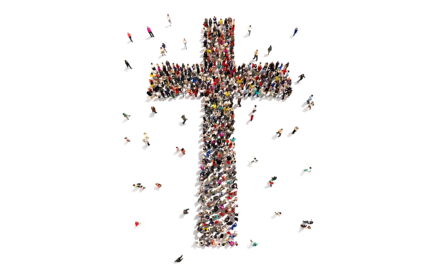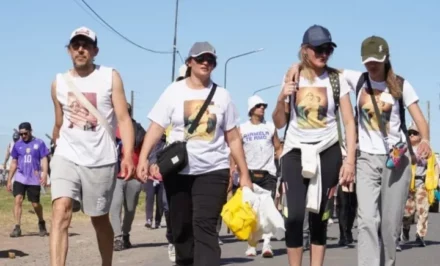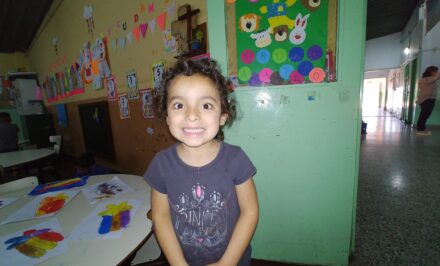 org. Every part of the Church, and many others outside of her – believers or non-believers – have received Pope Francis` clear and hope-filled words. They are also words that motivate us to assume the responsibility we all have to build a world in accordance to the Will of God, in the strength of the Spirit and through the way of Christ. Cardinals and bishops, priests, men and women religious, novices and seminarians, families, the youth and elderly, communities and institutes have received this challenge to go out “onto the street” to take – not a utopian hope – but concrete deeds in living evangelization projects to all men and women wherever they may be. And if they are on the “outskirts” then we have to go there, with all the risks and dangers it may include. He repeats to us constantly: I prefer an injured church, because she goes out to serve, to a Church that is sick because of her self-absorption. Testimony to this can be found in the section of Schoenstatt.org where on a weekly basis texts are selected which motivate us on our own pilgrimage toward the 2014 Jubilee. Undoubtedly, because we are the Church, these words are also directed to us. How happy must our Father not be with this missionary impetus which is given to us from the very heart of the Church! (Fr. José María García)
org. Every part of the Church, and many others outside of her – believers or non-believers – have received Pope Francis` clear and hope-filled words. They are also words that motivate us to assume the responsibility we all have to build a world in accordance to the Will of God, in the strength of the Spirit and through the way of Christ. Cardinals and bishops, priests, men and women religious, novices and seminarians, families, the youth and elderly, communities and institutes have received this challenge to go out “onto the street” to take – not a utopian hope – but concrete deeds in living evangelization projects to all men and women wherever they may be. And if they are on the “outskirts” then we have to go there, with all the risks and dangers it may include. He repeats to us constantly: I prefer an injured church, because she goes out to serve, to a Church that is sick because of her self-absorption. Testimony to this can be found in the section of Schoenstatt.org where on a weekly basis texts are selected which motivate us on our own pilgrimage toward the 2014 Jubilee. Undoubtedly, because we are the Church, these words are also directed to us. How happy must our Father not be with this missionary impetus which is given to us from the very heart of the Church! (Fr. José María García)
![]()
WEEK 45/2013

When the Church communicates only with documents and does not draw close, it is like a mother who communicates with her son in a letter, but neither kisses nor hugs him…This is how a mother relates to her son: she cares for him, kisses him, caresses him, feeds him. Not by correspondence.
Francis
Hope is not optimism, it is not the ability to see things in a light-heartedly and move on. No, that is optimism, it is not hope. Nor is hope a positive attitude towards things. These brilliant, positive people…this is good, right, but there is hope. It is not easy to understand what hope is. They say that it is the humblest of the three virtues, because it is hidden in life. Faith can be seen, can be felt, we know what it is. Charity is an action, we know what it is. But what is hope? What is this attitude of hope? To draw ourselves a little closer, we can say that hope is, first of all, a risk, it is a risky virtue, it is a virtue, as St. Paul said, “of ardent expectation for the revelation of the Son of God.” It is not an illusion. When I think to ask: where are we anchored, each one of us? Are we anchored on the shore of that distant ocean, or are we anchored on an artificial lake we have made for ourselves, with our rules, our behaviours, our routines, our clericalisms, our ecclesiastical…or non-ecclesiastical attitudes? Are we anchored there? All comfortable and safe? That is not hope. Where is my heart anchored, on this artificial lake of truly impeccable behaviour…
Santa Marta 29.10
This Sunday’s Gospel from Luke shows us Jesus on his way to Jerusalem as he enters Jericho. This is the last part of a journey that sums up the meaning of Jesus’ entire life, dedicated to finding and saving the lost sheep of Israel. But as this journey draws closer to its destination, the circle of hostility around Jesus closes in. But it is precisely in Jericho that one of the most enjoyable stories narrated by St. Luke takes place: the conversion of Zacchaeus. This man was a lost sheep, despised, “excommunicated” because he is a tax collector, even worse, he is the chief tax collector in the town, a friend of the hated Roman occupiers, a thief, and an exploiter. Nice guy, right? And so, he was prevented from approaching Jesus, probably because of his bad reputation, and being short in stature, Zacchaeus climbed a tree to see the Master as he passed by. But this exterior gesture, a little ridiculous, expresses the interior act of the man who tried to rise above the crowd to come into contact with Jesus. Zacchaeus himself probably did not recognize the profound significance of his action, but he does it anyway; and does not even dare to hope that the distance that separates him from the Lord can be overcome; he resigns himself to catching just a passing glimpse of him. But when Jesus approached the tree, he called him by his name: “Zacchaeus, come down immediately. I must stay at your house today” (Lk 19.5). That man, small in stature, rejected by all and far from Jesus, is like someone lost in anonymity; but Jesus calls him and his name, Zacchaeus, in the language of the time has a very beautiful meaning that is full of references: In fact, “Zaccheaus” means “God remembers.” It is beautiful. God remembers.
Angelus, 3.11
The saints are not superhuman, nor were they born perfect. They are like us, like each one of us, they are people who before reaching the glory of heaven lived normal lives, with joy, sorrow, struggles and hopes. But what changed their lives? When they experienced God’s love, they followed him with their whole hearts without conditions or hypocrisy; they spent their life at the service of others, they endured suffering and adversity without hate and responded to evil with goodness, spreading joy and peace…To be a saint is not the privilege of a few, but rather, the vocation of everyone. We are all called to walk the path of holiness, which has a name and a face: Jesus Christ. What do the saints say to us today? They tell us that we should trust in the Lord, because he does not disappoint us! Instead, their testimony encourages us to not be afraid of going against the grain or of being misunderstood or ridiculed when we speak about God and the Gospel.
Angelus, 1.11.2013
The first Christians depicted hope as an anchor, as if life was the anchor thrown to that shore and we are all grasping the rope. It is a very beautiful image of hope: to anchor our hearts where our dearly departed for us, where our ancestors, the saints, Jesus and God are. It is the hope that does not disappoint. And today and tomorrow (1 and 2 Nov) are days of hope. Hope is a little bit like the yeast that leavens the soul; there are there are difficult moments in life, but the soul goes ahead and sees what is waiting for us. Today is a day of hope. Our brothers and sisters are in the presence of God and one day we will join them through God’s pure grace if we walk along Jesus’ path. As the apostle concludes: “All who have this hope in him purify themselves, just as he is pure.” Hope also purifies us, lightens us, makes us hasten on. This purification is hope in Jesus Christ. As the sun sets today, each of us can think about the sunset of our own lives. We think, mine, yours, yours, and so on. All of us will experience the sunset, all of us. Do I see it with hope, with the joy of being received by the Lord like the Christian? And this gives us peace. It is a day of glory, but a serene glory, tranquil, peaceful. Let us think of the sunsets of the many brothers and sisters who have preceded us, and let us think of our own sunset, when it arrives. And let us think of our hearts, and ask ourselves, ‘Where is my heart anchored?’ If it is not anchored well, let us anchor it there, on that shore, in the knowledge that hope never disappoints, because the Lord Jesus never disappoints.
Homily at the Verano Cemetery, 1.11.2013
There is no occupation or social condition, no sin or crime of any kind, that could erase from the memory and the heart of God even one of His children. “God remembers.” Always. He does not forget about any of those he has created. God is a Father, always keeping a watchful and loving vigil “to see reborn in the hearts of the child the desire to return home. And when He recognizes that desire, even simply stated, He is immediately close by, and with His forgiveness He makes the path of conversion and return easier. Let’s look at Zacchaeus, today, on the tree. His is a ridiculous gesture, but it is an act of salvation. And I say to you: if something weighs on your conscience, if you are ashamed of the many things you have done, do not panic. Do not be afraid. Think that someone is waiting for you because he has never stopped remembering you, thinking of you. This someone is your Father, it is God, it is Jesus who is waiting for you. Climb up, as did Zaccheaus, climb the tree of the desire for forgiveness. I guarantee that you will not be disappointed. Jesus is merciful and never tires of forgiving. Remember well, that’s how Jesus is.
Angelus 3.11
If we are rooted in the source of Love, which is God, then a reciprocal movement also occurs: from brothers to God. The experience of fraternal communion leads me to communion with God. Union among us leads to union with God, it leads us to this bond with God who is our Father. This is the second aspect of the communion of saints that I would like to highlight: our faith needs the support of others, especially in difficult moments. If we are united our faith becomes stronger. How beautiful it is to support each other in the wonderful adventure of faith! I say this because the tendency to be closed and private has influenced the religious sphere as well, so much so that it often becomes difficult to ask for spiritual help from those would share this Christian life with us. Who among us has not experienced insecurity, confusion and even doubt on our journey of faith? We have all experienced this, myself as well. It is part of the journey of faith, it is part of our life. None of this should surprise us, because we are humans beings, marked by fragility and limitations. We are all frail, we all have limitations. Nevertheless, in these difficult moments it is necessary to trust in God’s help, through child-like prayer, and, at the same time, it is important to find the courage and the humility to open up to others, to ask for help, to ask for a helping hand. How often have we done this and then succeeded in emerging from our difficulty and finding God again! In this communion — communion means common-union — we form a great family, where every member is helped and sustained by the others.
General Audience, 30.10.2013
The Holy Spirit works: he can’t be seen but he is there. It is a grace we need to ask for. It is one thing to live in hope, because it is through hope that we are saved, and it is another thing to live as good Christians, and nothing more. We can live awaiting the revelation or live well with the commandments; we can be anchored on a distant shore or floating on the artificial lake. I think of Mary, a young girl, after she heard she was going to become a mother, she changed her attitude and went out, helped and sang her song of praise. When a woman falls pregnant, she is a woman, but she is not just a woman; she is also a mother. And hope is part of this. It changes our attitude: we remain ourselves but we are not ourselves; we are ourselves, searching there, anchored there.
Santa Marta, 29.10
Translations: Vatican.va, VIS, Radio Vatican, Sarah-Leah Pimentel/schoenstatt.org
See all texts in “Francis for the Pilgrims 2014”
![]()
The aim of the pilgrimage
is the renewal of the covenant of love
as a missionary and unifying creative force,
i.e. internally the renewal of the Schoenstatt Family
and externally the shaping of covenant culture.













